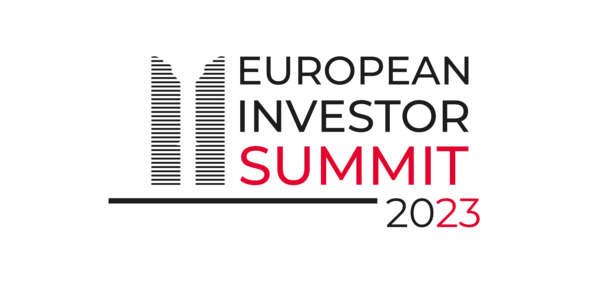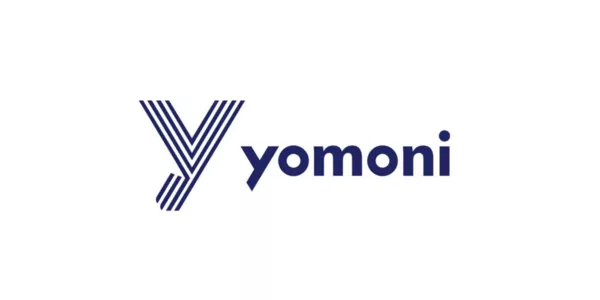
Tunisia: On track to boost its attractiveness
Similar to what is happening in several financial centres, collective efforts have been made over the last five or so years by the main players in the Tunisian financial market ‒ the Central Bank of Tunisia (BCT), the Financial Market Council (CMF), Tunisia Clearing (TC) and the Tunis Securities Exchange (BVMT) ‒ to improve Tunisia's visibility to foreign investors.
The approach is focused on improving the classification criteria used by international index providers such as Morgan Stanley Capital International (MSCI) and Financial Times Stock Exchange (FTSE), which are closely watched by foreign investors, particularly institutional investors.
Here is a brief list of the most significant of these efforts:
The new Tunisian investment code:
The new investment law1 passed on 30 September 2016, replacing the old investment code (1993), gave a strong and clear signal to foreign investors about the ease of access underlined by MSCI in its "Foreign ownership limit level" criterion. Indeed, the first sentence of Title II (Article 4) states that "Investment is free", putting an end to the need for authorisation from the Conseil Supérieur de l'Investissement ("High Council on Investment") for foreign holdings in excess of certain percentages in Tunisian companies. Furthermore, the first article of Title III (Article 7) of the same law states that "In comparable situations, foreign investors shall receive national treatment that is no less favourable than Tunisian investors with regard to the rights and obligations provided for in this law", thereby establishing the spirit of equality in how foreign investors and local investors are treated, which aligns with the MSCI criterion on "Equal rights to foreign investors".
The enactment of a law to protect minority shareholders:
Since August 2019, all listed companies have been required to include in their Board of Directors a representative of small shareholders elected by the minority shareholders following an update to Article 38 of the General Rules of the Stock Exchange ("RGB")2 which transposes the criterion mentioned by FTSE on "Fair and non-prejudicial treatment of minority shareholders".
The new platform of the Central Bank of Tunisia:
This new regulation, which officially came into force in 2018, has remedied the incomplete compliance of a few Tunisian banks with the procedure for reporting foreign investments, which exposed a number of foreign investors to the risk of being unable to repatriate the proceeds from their investments. Combined with a desire to modernise and secure the procedures for reporting foreign currency investments by non-residents in Tunisia, thanks to this platform the BCT is digitising its old "investment data form". The foreign investor is now involved in the investment/divestment reporting process. This process makes the transfer of funds more seamless, in line with the MSCI criterion "Ease of capital inflows/outflows".
SGSS Tunisia persuaded the BCT to prevent this procedure from adversely affecting the FTSE criterion "No or simple registration process for foreign investors", thus allowing the possibility of a representative (in this case, the foreign investor's custodian bank) inputting the information on the BCT platform on behalf of the end-client under a power of attorney, or "POA".
The new Tunisia Clearing system (Tanit CSD)
Launched in September 2020, TANIT-CSD offers end-to-end automation through secure file exchange in SWIFT format, significantly reducing operational risk and getting closer to international standards. Meanwhile, TC has begun to act as the central registrar for all listed companies, ensuring greater transparency and therefore greater security for investors.
This modernisation directly meets the "Registry/depository" criterion underlined by MSCI in its "Efficiency of the operational framework" sub-criterion.
A new BVMT trading system: Optiq
"On 30 August 2021, we opted to migrate from the old NSC trading system to the new Optiq® platform. In fact, it is still Euronext technology," says Bilel Sahnoun, CEO of BVMT.
"Thanks to its robustness and technological capabilities, this new platform can process transactions in nanoseconds. It has also given us the notion of a dynamic threshold; as a result, 90% of human interventions have been eliminated. The platform also improves transparency, to avoid speculation on prices at the start of trading. The most important advantage for BVMT is that there will no longer be a technological constraint when we have the opportunity to develop complex or more sophisticated financial products, because this new platform will be able to manage them. In technological terms, the Tunis Stock Exchange is ready for the future," added Mr Sahnoun.
This perfectly meets the "Efficiency of the operational framework" sub-criterion mentioned by MSCI.
Adaptation of the regulations on the "Stock lending/selling", "Short sales/lending permitted" and "Developed derivatives market" aspects sought by MSCI.
Despite the fact that the Tunisian marketplace is now operating on the new trading platform that effectively supports these issues from a technical standpoint, the regulatory framework still does not allow these products/practices. Indeed, a new law replacing the 1994 law is being prepared by the CMF and should provide sufficient flexibility to the market to include products other than stocks and bonds, such as derivatives, commodities, stock lending/borrowing, and exchange-traded funds (ETFs).
Official websites now available in English:
This initiative led by the main market entities (BVMT, CSD, TC and BCT) ensures equitable access to information, thus meeting MSCI's criterion for availability of information in English under "Equal rights to foreign investors".
The achievements to date have made it possible to further promote Tunisia's visibility. As a reminder, FTSE has improved its assessment of Tunisia twice since 2017. The first assessment focused on the "Efficiency of the trading mechanism" criterion, while the second one, which took place in 2021, focused on "the structure of securities accounts at the central depository". These criteria are now "fulfilled" according to FTSE.
That said, the Tunisian marketplace still faces several challenges:
An engine to translate information into English:
One idea would be to set up a machine translation engine for the continuous flow of official financial information. Once in place, this solution could meet the MSCI criterion regarding "Information flow". BVMT is working with all stakeholders (including the Order of chartered accountants) to make this idea a reality.
Large IPOs are required:
The biggest challenge is to introduce at least two market capitalisations of at least "$1.594m" each, so that the Tunisian market can aim for "Emerging" status.3 Some candidates could meet these conditions, such as mining (Groupe Chimique de Tunisie, Phosphate Gafsa) or oil (ETAP) companies or the Régie des Tabacs (RNTA).
The listing of companies of this scale is rather delicate, especially in the current macroeconomic and socio-economic context. It would require the participation of all stakeholders (government, employers' association and social partners).
We obtained a first-hand account from Mr Sahnoun, CEO of BVMT4 who described the current situation of the Tunisian market in these terms: "Never give up. Today it's hard, tomorrow will be even worse, but the day after that will be sunny," says Mr Sahnoun, who continues to showcase the perseverance and the efforts made to position Tunis as a marketplace that deserves to be upgraded to "emerging market" status.
According to Mr Sahnoun's account, along the lines of the new Optiq platform, many projects have been completed or are in progress that will further develop our market.
Regulatory overhaul:
A project is under way, with the assistance of the EBRD (European Bank for Reconstruction and Development) and the financial centre, under the auspices of the Ministry of Finance. It consists in reforming Law no. 94-117 of 14 November 1994 on the organisation of the financial market.
Another important project is our work on a digital compartment dedicated to start-ups, in collaboration with the German Agency for International Cooperation (GIZ). A study on the feasibility of a Commodities Exchange was also conducted in partnership with USAID (United States Agency for International Development) Tunisia JOBS.
ESG Reporting Guide:
In collaboration with the Konrad Adenauer Foundation, the Tunis Stock Exchange launched a guide to extra-financial reporting/ESG (Environmental, Social and Governance) in December 2021.
In conclusion, our ultimate objective is to upgrade our financial centre in all areas: technology, functionality, liquidity and depth. We are still classified as a "Frontier" market, despite improvements in our FTSE rating over the past few years. Unfortunately, the transition from "Frontier Market" to the next category, "Emerging Market", requires, beyond the will of the stock exchange, an inescapable minimum size and the listing of large companies.
Furthermore, we felt it was appropriate to look at the experience of the Moroccan market, which is viewed as a concrete example of an upgrade followed by a downgrade ten years later.
The impact of the upgrade was positive, according to the passionate explanation from Mr. Younes Sekkat5, Chairman of the Executive Board of Sogécapital Bourse Societe Generale Maroc and Chairman of the Association Professionnelle des Sociétés de Bourse ("Professional Association of Brokerage Firms"). In 2003, Morocco was awarded MSCI "Emerging Market" status, which contributed to a marked improvement in the market's liquidity from a turnover rate of less than 6% to a peak of nearly 20% in 20076.
This period was also characterised by the strong performance of its flagship indices: the Moroccan All Shares Index (MASI) and the Moroccan Most Active Shares Index (MADEX), which posted record levels with an increase of +430%7 and a sustained pace averaging about 10 IPOs per year.
The weight of foreign investors also increased significantly from 7% to an average of 15%. After 2007, and following the severe international financial crisis, the market began to correct with a steady decline in the volume of transactions bringing the liquidity indicator down to between 6% and 7% until 2013, when the stock exchange was downgraded by MSCI from "Emerging Market" to the "Frontier Market" index.
Mr Sekkat also confirmed that the share of foreign investors' trading volume has declined over the years to 8%.
1Investment Law no. 2016-71 of 30 September 2016
2General Rules of the Tunis Stock Exchange
3Activity reports, BVMT 2020
4 Link to full comments, in French only
5Link to full comments, in French only
6Casablanca Stock Exchange
7 Annual reports




